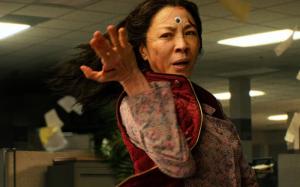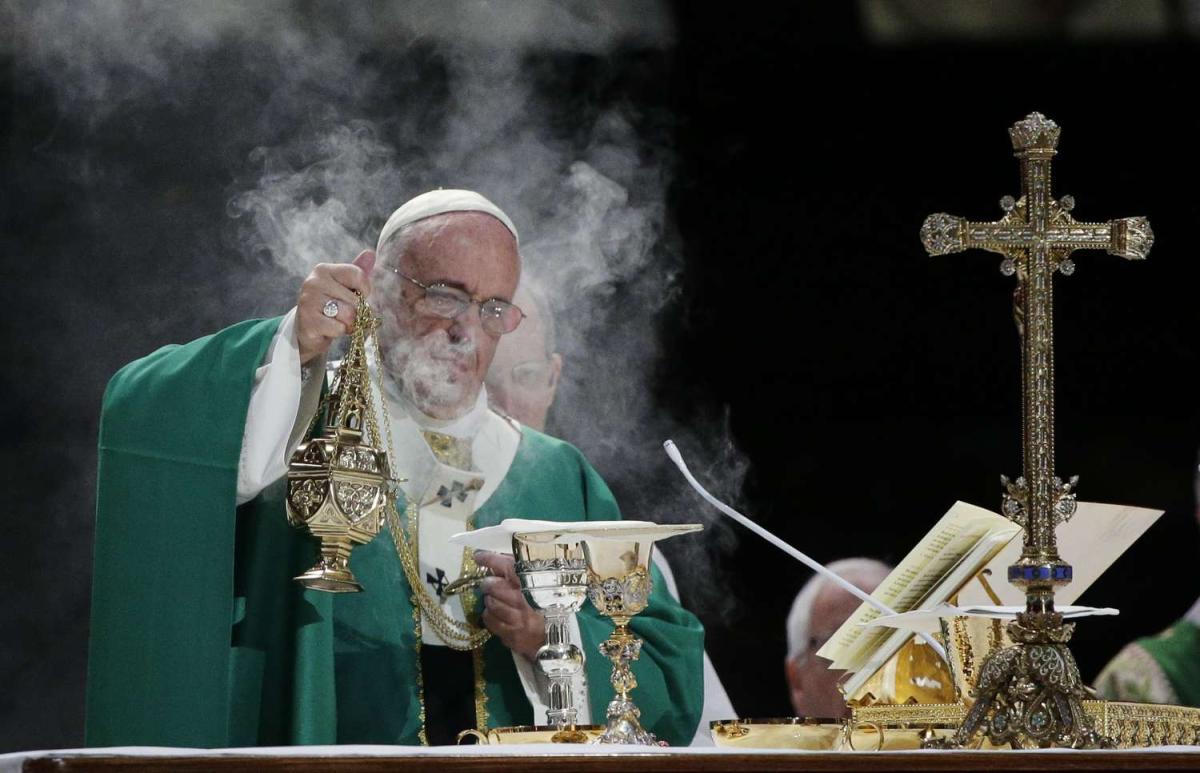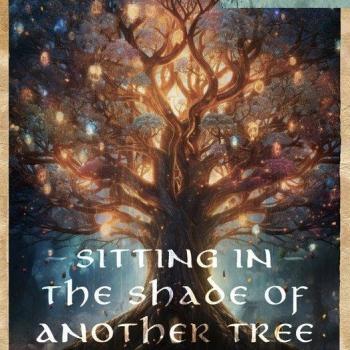
Everything, Everywhere, All At Once is a wild ride. I couldn’t figure out what I was watching half the time – was it a comedy, a family drama, a sci-fi adventure, a spiritual fable? By the end I found it was all of these and much more. The film asks questions that are often left unaddressed by formal religious institutions, but which certainly fall under the umbrella of existentialism and thereby spirituality. As a Christian, I found its core question intriguing – if everything is possible, then does anything matter?
This is the question boring a hole into Jobu Tupaki’s mind, driving her to despair. It poses further questions too – can joy exist in the absence of sorrow? Going through a dark time tends to awaken an appreciation of the small things in life when we come out the other side. The death of a loved one helps us treasure those we still have even more. In this sense, lack informs how we feel about plenty, and loss informs how we feel about gain.
This is what terrorises Jobu Tupaki – by definition, endless power and ability has no counterbalancing qualities. She need not strive to achieve, which would of course yield satisfaction in the achievement itself; she can achieve in the blink of an eye. There is no growth available to her, no closed doors to knock upon, no keys to seek out. The journey of life appears to be over.
Jobu Tupaki is staring down the barrel of nihilism and can’t see an alternative. Her mother, Evelyn, is faced with the same dilemma, but inspired by her husband Waymond’s kindness, she chooses another route. In the final battle between her father Gong Gong’s followers and Evelyn, she speaks affirmation and kindness to those attacking her. She tells the fiercely caustic Deirdre that she is lovable, pulling her into an embrace; she turns bullets shot to kill her into Waymond’s googly, stick-on eyes – the absurd, used as a counter measure to nihilism; she heals one of her attacker’s spinal complaint and causes two more to fall in love.
Most importantly, when her father tells her to let Jobu Tupaki go, Evelyn refuses to abandon her daughter as Gong Gong once abandoned her. She chooses to esteem herself instead of caring about her father’s opinion, which is a form of kindness to herself.
The final epic fight between mother and daughter is one of wills, with Evelyn restraining Jobu Tupaki as she strains to enter the bagel (where she will be annihilated). Gong Gong is converted by kindness, anchoring Evelyn while Waymond anchors him in turn. The whole family is giving their all to save Jobu Tupaki, but she is determined to end the life she sees as utterly without meaning. Evelyn declares her unwavering motherly love and affirms that she will always want to be with Joy, no matter the difficulties between, but it is Joy who must decide. In the end, the tsunami of human kindness wins out and Joy chooses to live on, reconciled to her family.
Everything, Everywhere, All At Once answers an existential question with a qualitative solution. It accepts that from a logical point of view, everything being possible can render all choices meaningless, but it also argues the opposite – that kindness can never be meaningless, and is always a choice. It is in the choice to give and receive love that Joy, Evelyn, Gong Gong, and Waymond find true meaning.
As a Christian, I find this insightful. According to the faith of my upbringing, we are destined for Heaven – a place where everything is possible, an eternal realm where no hardship or trouble exists and there are no challenges to overcome. While others seem to accept this as a good idea, I have often struggled with it, wondering how I will know joy without knowing suffering, how in the boundless ocean of eternity I will find boundaries and structures that make sense of life in the hereafter. The very notion of eternal paradise makes we want to choose the bagel!
Everything, Everywhere, All At Once offers an insight. Not a complete answer, but the faintest sound of a song being sung in the distance. The inference, for me, is that it is the quality of relationships which will constitute meaning in the afterlife. Evelyn reminded Joy that she was her mother, and the Holy Spirit will do the same for us in Zion. Jesus will call us brothers, sisters, and friends, and that ultimate kindness will draw us into deep, relational meaning that will exist in every moment. It will be the very air we breathe. It is love that saves us, and it is love that will forever give our lives and our choices meaning, beyond this life and into the next.
I can’t pin the descriptor ‘religious’ onto this film, other than in the broadest possible sense – humankind’s search for meaning. Religion comes with rigid structures, formality, and boxy ideas, and Everything, Everywhere, All At Once is the very opposite of all that. It might not be a religious film but it certainly is spiritual, at least to a spiritual person. Given the enormous response it has received, I expect that anyone who likes to question existence would find it as meaningful as I did, whether religious or not.













